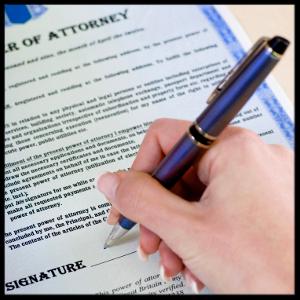|
June 2016
Welcome to this month's edition of the McManamy McLeod Heller, LLC monthly newsletter. Each month we share important information for the serious real estate professional. You can rely on MMH to update you on current changes in real estate law that will impact your business and to offer you practical ideas on how to provide your clients with the best customer service in town.
Effective Use of a Power of Attorney
In Real Estate Transactions

A Power of Attorney (POA) is a written instrument that allows the "Principal" to authorize the "Agent" (Attorney-in-Fact) to conduct certain business on his/her behalf, i.e. sign legal documents, collect and deposit money. This is a powerful grant of authority and requires strict adherence to issues of execution and the specific authority granted. 1. What are the types of Powers of Attorney?
- General - broad powers allowed (acting on behalf of person who is mentally incapacitated, representing person on military leave). These are generally not acceptable in real estate transactions.
- Special (Limited) - very specific powers are authorized (representing a person at a real estate closing). Most closing attorneys and title companies will require a Special Power of Attorney. The best course of action is to have the closing attorney prepare the POA, but if that is not possible, make sure the closing attorney reviews the POA well in advance of the closing.
2. What are the requirements for use of a Power of Attorney at Closing? - It is best to have the closing attorney provide the form.
- Lender approval is required. Put the lender on notice that a POA will be used.
- Make sure all of the blank sections (dates, county, etc.) are completed.
- There must be two witnesses (one unofficial and a notary) and each must witness execution. Notary seal must be affixed to the document. IMPORTANT: IF THE NOTARY ATTACHES AN "ACKNOWLEDGEMENT FORM" THEN PLEASE CONTACT US DIRECTLY FOR FURTHER INSTRUCTIONS. A NEW LAW IS IN PLACE THAT GOVERNS THE EXACT LANGUAGE THAT MUST BE USED.
- Grantor must sign exactly as name is printed, provide Social Security number, and include a photocopy of a picture ID (drivers license or passport).
- Make sure that a valid legal property description is attached to the document (contained either within the body of the document or as an attachment). If an attachment, the legal needs to be initialed.
3. What is the form of the signatory?
________________________
John A. Smith by Jane B. Smith as his Attorney-in-Fact (Or other form as prescribed by the Lender)
Important Note: The executed document and copies of ID should be faxed to the closing attorney's office immediately after execution (and well in advance of the closing) for review. The original must be brought to the closing or sent in advance.
 Have You Visited Our eNewsletter Archive?
 Missed a past eNewsletter or want to review a past article? McManamy McLeod Heller archives all of our past eNewsletters on our website at www.mmhfirm.com. Visit the site and click on the "View Our eMail Archive" button. Missed a past eNewsletter or want to review a past article? McManamy McLeod Heller archives all of our past eNewsletters on our website at www.mmhfirm.com. Visit the site and click on the "View Our eMail Archive" button.
MMH Has 3 Locations to Serve Your Needs
Buckhead Location:
3520 Piedmont Road NE, Suite 110
Atlanta, Georgia 30305
Phone: 404-442-6600
Fax: 770-351-0940
Midtown Location:
621 North Ave NE Suite C100
Atlanta, Georgia 30308
Phone: 404-502-3334
Fax: 1-866-898-1099
Alpharetta Location:
11525 Haynes Bridge Rd. Suite 250
Alpharetta, Ga 30009
Phone 770-781-3000
Fax: 888-998-7373
Thank you for taking the time to read our newsletter.
Next month we will be presenting a topic on Building Line Violations. These are errors that could cost you money!
We would love your input on topics for future issues. Please send your suggestions to info@mmhfirm.com.
|